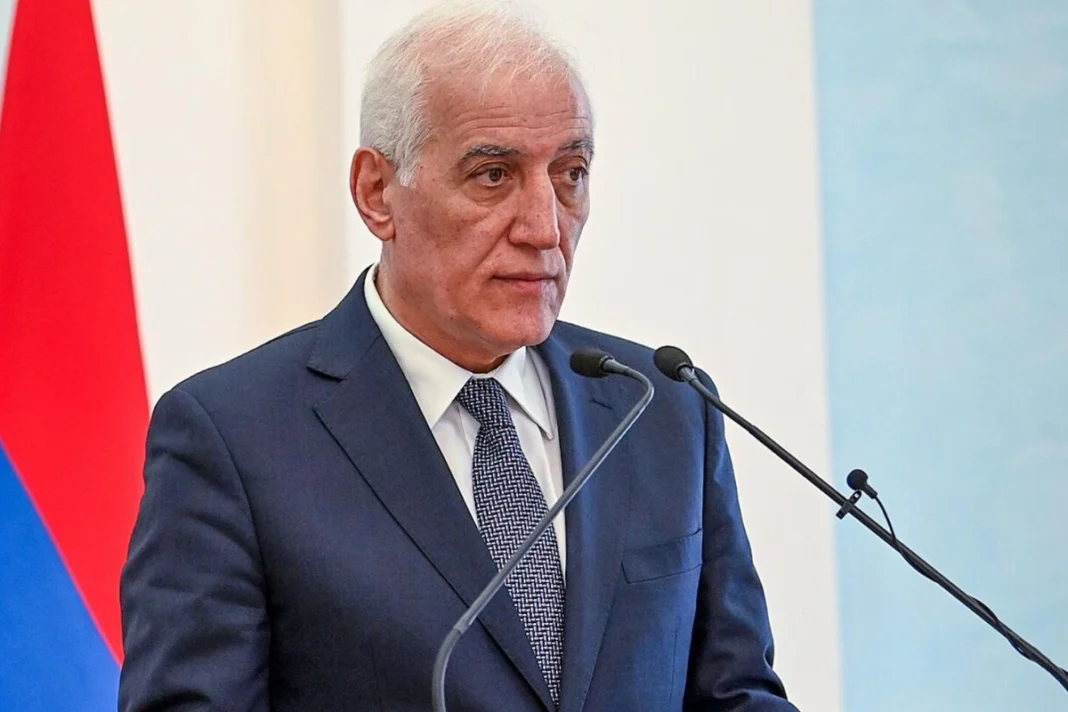Armenian President Vahagn Khachaturyan has officially signed into law a controversial bill allowing for the nationalization of the country’s largest energy distributor, “Electric Networks of Armenia” (ENA). The move comes amid growing political tensions and is widely interpreted as part of a broader government campaign against influential business and religious figures aligned with the opposition.
Background: Who Owns ENA?
ENA was privatized in 2002 and later acquired in 2016 by Russian-Armenian billionaire Samvel Karapetyan, a prominent businessman and philanthropist. Karapetyan, who heads the Tashir Group, invested over $200 million into modernizing Armenia’s aging electricity infrastructure, improving distribution systems and reducing power losses.
Despite his contributions, Karapetyan has increasingly come under pressure from Prime Minister Nikol Pashinyan’s administration, particularly due to his open support for the Armenian Apostolic Church and growing criticism of the government.
Political Arrest Sparks Controversy
On June 18, 2025, Karapetyan was arrested on charges of “publicly inciting the violent overthrow of constitutional order”, following a fiery speech defending the role of the Armenian Church and accusing the government of undermining national identity.
His arrest triggered widespread outcry among opposition parties, church supporters, and civil society groups, many of whom view it as a politically motivated attempt to silence dissent and reassert state control over strategic assets.
Within days of his detention, the government announced that ENA would be nationalized and prepared for public auction, further fueling speculation that the state was targeting Karapetyan’s business empire under the guise of legal reform.
Law Signed by the President
On July 7, President Khachaturyan signed the nationalization bill into law. The decision was published on the presidential website without elaboration. Parliamentary approval was secured earlier by the ruling Civil Contract party, which holds a majority in the National Assembly.
The government argues the move is necessary to ensure “energy sovereignty and security”, citing the strategic importance of ENA in the country’s energy sector. However, critics claim it’s a thinly veiled attempt to punish political opponents and reassert state dominance in key industries.
Regional & International Implications
Russian reaction: Given Karapetyan’s close ties to Moscow and the Russian business community, analysts warn the nationalization could strain Armenia’s relationship with its traditional ally. Some Russian media have already called the move “economic expropriation.”
Investor concerns: The incident raises red flags for international investors, potentially damaging Armenia’s image as a secure investment destination in the South Caucasus.
Church-State tensions: The clash highlights deeper fractures between Armenia’s secular government and its historically influential Apostolic Church. The Church has not commented officially on Karapetyan’s arrest but continues to face increasing restrictions on its public and educational role.
Expert Opinion
Political analyst Richard Giragosian, director of the Regional Studies Center in Yerevan, says:
“This is not just about energy policy—it’s about power, literally and politically. By targeting Karapetyan, the government is sending a message that no individual or institution, even the Church, is beyond its reach.”
What’s Next?
While the government prepares ENA for auction or restructuring under state control, legal challenges from Karapetyan’s legal team and possible appeals to international courts could delay or complicate the process. Observers are watching closely for EU or Russian responses, particularly regarding investment protections and bilateral ties.
Armenia’s move to nationalize ENA is not only a major economic decision but a deeply political one that could reshape the country’s energy future, investor climate, and balance of power between government, business, and the Church.


